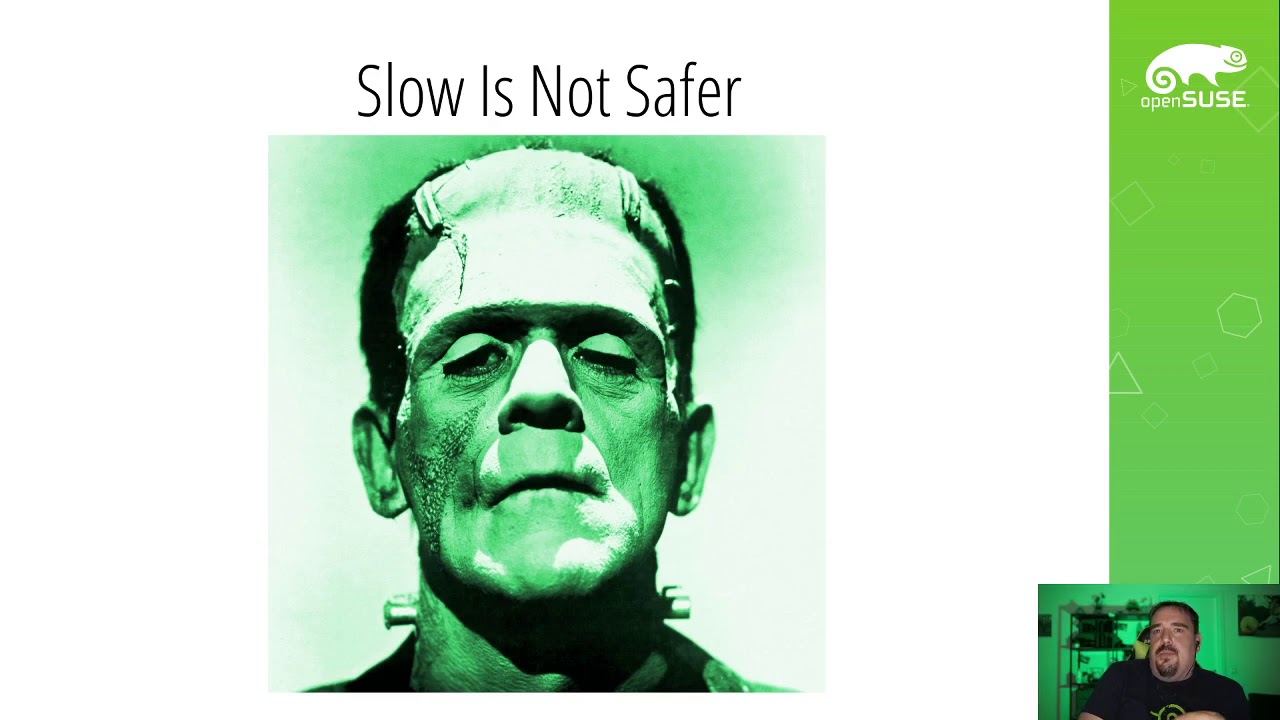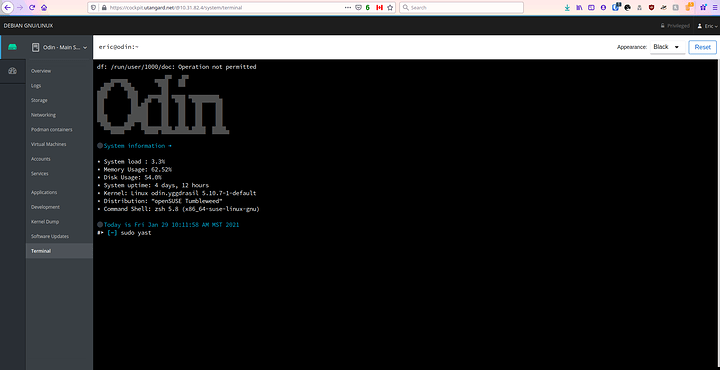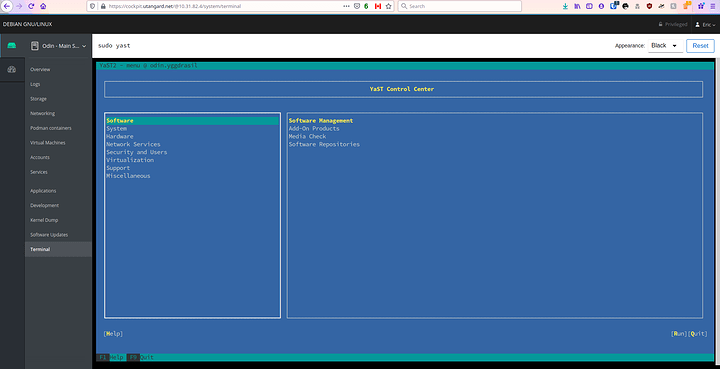News Topic Thread:
CentOS Becoming Rolling(-ish?) Release
So Cent OS has begun a new as Cent OS stream. Well let us see what our alternatives are. Comment below what alternative you will use and why? This isnt an overall which distribution should you use post. That belongs to @SgtAwesomesauce (I think. I couldnt find it in a search so no link for now)
LINK: So you're looking for a Linux Distro?
Welcome to an Analysis of Alternatives (or AoA in project management speak).
So what are we looking for? That is a pretty loaded question I feel. Linux is changing. The computing world is changing as a whole. Some things are moving faster. The older stable, patch tried and tested software mentality is beginning to be thrown out for faster development schemes. Some see this as bad to which I do not. Thus I will split the alternative options into three groups. Stable (LTS), Point and Rolling Release. Theres a case for each. They have their trade offs and benefits. If your Linux distribution did not make it well its likely due to lack of realistic use in an prod environment (sorry). A lot of people are disheartened to see the shortened support lifecycle of stream and 8. I think this change may have been inevitable but there maybe a lot of cost implications in terms of red hat licensing. We shall see how software reacts! That is the fun of this area of the computing world. It is very dynamic. Remember the purpose of an AoA is not to eliminate any choice. It is to put all options on the table. Your choices come later 
I hope that a list of alternatives and seeing other people’s reasoning in comments will aid somebody somewhere in their own decision making! Let’s dig in.
Stable (LTS)
A stable or Long Term Support release distribution puts out installation images on a very rigid and fixed schedule. A new LTS release is typically released every two to four years. The support lifecycle typically hovers around the enterprise average lifecycle of 5 years. LTS applies the tenets of reliability engineering to the software development process and software release life cycle. Long-term support extends the period of software maintenance; it also alters the type and frequency of software updates (patches) to reduce the risk, expense, and disruption of software deployment, while promoting the dependability of the software. It does not necessarily imply technical support.
Pros
- Well tested software
- Generally bug free
- Continous security updates
- Stability is king
Cons
- Backports
- Incompatibilities between patches and software
- Slow
- Cumbersome and typically out of date
Distributions:
- OpenSUSE LEAP (free) | Suse Linux Enterprise (commercial) - Potentially the best choice of all alternatives. This has probably the longest interval between releases of any of the point release distributions. However, it is a bit more aggressive about updating some major packages between point releases, so it doesn’t get uncomfortably out of date. Usually.
- RHEL - DUH
- Debian 10 - A solid classic distribution. Unfortunately the community itself is very fractured and lacking quality leadership lately.
- Ubuntu Server LTS (20.04 currently) - A solid stable distribution. Polarizing due to tight integration with Snap Packages
- Oracle Linux - @Dynamic_Gravity has more details than I. Very stable I heard but a lot of people do not trust oracle. Im sure the software itself is probably okay and built on stable rebranding of RHEL.
- FreeBSD - The mighty stable networking beast of the UNIX world. A great alternative to using linux but package support may not be as widespread as Linux
-
Rocky Linux (Soon ™ )
- Rocky Linux is a community enterprise operating system designed to be 100% bug-for-bug compatible with America’s top enterprise Linux distribution now that its downstream partner has shifted direction. It is under intensive development by the community. Rocky Linux is led by Gregory Kurtzer, founder of the CentOS project. There is no ETA for a release. Contributors are asked to reach out using the communication options offered on this site.
- It is worth noting this project absolutely could fall apart and is by no means a project to rely on!
Point
A point release distribution puts out installation images on some sort of a fixed schedule, typically something like every six months, nine months or even annually. Each such release is identified by a specific name, which usually includes either the date or sequence number of the release. In most cases, between the major releases only security bug fixes and updates are made to the Linux kernel and desktop environment, but policies on utilities and applications vary between distributions.
Pros
- Generally tested software
- Generally stable
- Faster to update
- Frozen software per release
Cons
- Often has bugs
- Strange hybrid between stable and rolling
- Short lifecycle support
- Same cons as stable
Distributions:
- Fedora Server - A fast moving testing track of RHEL. Branched off of Fedora. Kernel updates are fast.
- Ubuntu Server (Non LTS Current is 20.10) - - A solid short release distribution. Polarizing due to tight integration with Snap Packages
Rolling
A rolling release is a model in which updates to a software are continuously rolled out, rather than in batches of versions. This way the software always remains up to date. A rolling release distribution follows the same model and it provides the latest Linux kernel and the software version as they are released. Thus a A rolling-release Linux distro is one that’s constantly being updated. To some of you, that will sound a lot like DevOps’ idea of continuous deployment. You’d be right in thinking so. In both cases, the idea is that users and developers are best served by giving them the latest updates and patches as they’re created. These minor incremental updates lead to less breakage and typically more compatibility as software is not frequently held back and the entire system is generally updated at approximately the same speed. Use on production may or may not be recommended depending on the situation. It is, however, becoming a more acceptable model which I trully love seeing.
A great video and case:
Pros
- Releases are always up to date
- Minor incremental changes
- Patches are easier to implement
- Lack of need for backports
- Faster response to security bugs
Cons
- Library and package incompatibilites with slower/traditional lifecycle software
- Continuous support lifecycle maybe difficult for some
- Potential for newer bugs more frequently
Distributions:
- OpenSUSE Tumbleweed - Fast, lean, surprisingly stable. The best rolling release choice overall. The OBS (open build service) and YaST2 are a god send. Learn more here on their docs.
- Arch Linux - The classic rolling release. Breakage caused by all non official distro packages. Has probably one of the best wiki/documentation of any distribution. The only distribution coming close is OpenSUSE’s wiki
- Debian Stretch (Testing) - What Ubuntu is based on. Another classic rolling release
- CentOS Stream - The strange red headed step child of new Cent OS and RHEL. How good it is remains to be seen.
What have I chosen?
In my disorganized changeBlog  , PhaseLockedLoopable you will find I have a slew of different OSes. This is what one should expect however my choices are debian (raspberry pi) and SUSE- Tumbleweed for all other systems. Including a laptop. You might find it strange I used a rolling release on a production home server. The truth of the matter is with all the ZFS updates and cloud updates and the software I plan to use on the system; point releases just wont serve me what I want and I am sick of updating, and by extension breaking, point releases. I am sure the forum will find out how this adventure goes. I am quite excited! Its mostly operational. Just waiting on more hardware before converting the system to a server. I need a laptop (its a terrible time to buy).
, PhaseLockedLoopable you will find I have a slew of different OSes. This is what one should expect however my choices are debian (raspberry pi) and SUSE- Tumbleweed for all other systems. Including a laptop. You might find it strange I used a rolling release on a production home server. The truth of the matter is with all the ZFS updates and cloud updates and the software I plan to use on the system; point releases just wont serve me what I want and I am sick of updating, and by extension breaking, point releases. I am sure the forum will find out how this adventure goes. I am quite excited! Its mostly operational. Just waiting on more hardware before converting the system to a server. I need a laptop (its a terrible time to buy).
Concluding notes
I do definitely recommend OpenSUSE or SLE as the current competitor if we look at the current market and assess future risk. It provides various kinds of releases and has amazing documentation and tools. The installer is second to none and the community does seem to have the best alternative track record to Cent OS and it is currently operated and owned by a US company. Its future looks rather bright. All distributions have their tough times in their community with Debian having a very bad time recently with finding any clear leadership. This is not good for a distribution and has the potential to lead to its demise. Fortunately for debian the size of its reach seems to be its current lifeline.
Overall I cant do all the risk analysis for everyone’s situation only my own. I would love to hear what your analysis of alternatives lead you to. Sound off in the comments to talk about what you chose and why. Please distrubition discussions are fine. Distro wars will be met with a swift clean. It typically yields a zero sum discussion to war over which is better. They are all just kernels, a package manager and a set of tools.
There are arguments for and against each model. Choose the model that fits you best not what others argue 
Other Resources:
Links
Rolling vs. Fixed release Linux Distros? Which one is Best for You? | Average Linux User
Linux distributions: Rolling releases vs point releases, which should you choose? | ZDNet
Rolling vs. Point Release Linux Distros – Which is better? | FOSS Linux
Are Rolling Release Linux Distributions Suitable For Your Server?
UPDATE 1: Alternatives to CentOS - An Analysis of Alternatives - #23 by PhaseLockedLoop
Im sure you can find more


 ) shifting from CentOS to openSUSE Leap for servers. Since the software my dad works on is made to run on lots of different *nix platforms, it’s easy to switch over and if SUSE does some shenanigans, then switching again will be no big deal either.
) shifting from CentOS to openSUSE Leap for servers. Since the software my dad works on is made to run on lots of different *nix platforms, it’s easy to switch over and if SUSE does some shenanigans, then switching again will be no big deal either.

